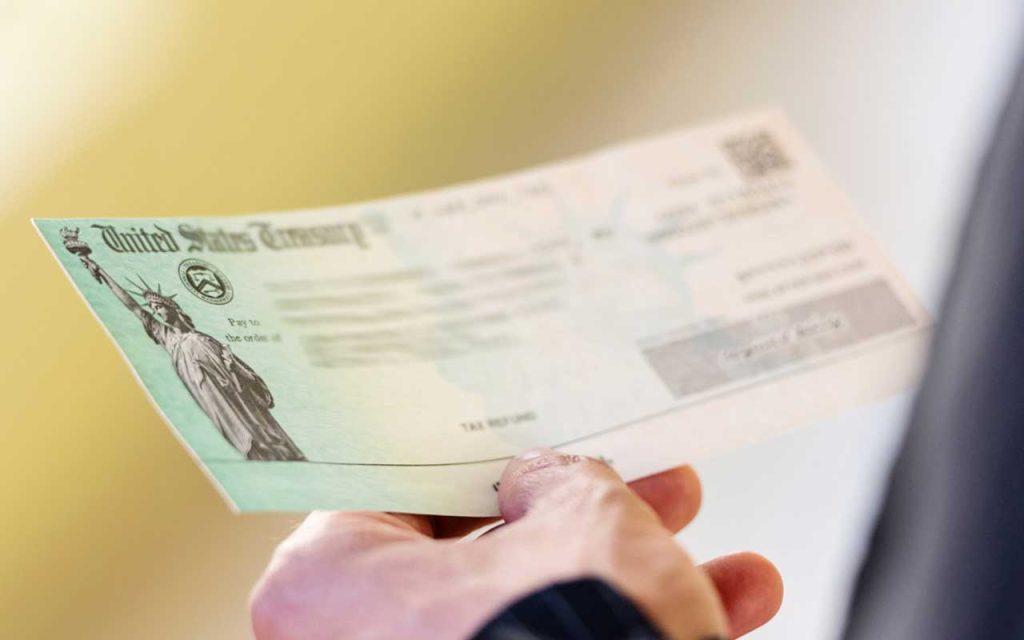02 Apr $1,200 TAX REBATE CHECKS IMPACT ON PUBLIC BENEFITS
Many Americans will soon be getting $1,200 stimulus checks (which are considered a tax rebate) if they are (1) of working age, (2) not an adult dependent and (3) their income is less than $75,000 ($150,000 if married). Smaller checks will be received by those whose income is $99,000 or less ($198,000 if married). This tax rebate will be sent to those who have filed a 2018 or 2019 tax return or if they are receiving Social Security. Will these checks impact public benefits?

- Income Requirements. Long-term care Medicaid (which helps pay for some or all of long-term care costs such as nursing homes and drug costs) has an income cap of $2,349 per month for Medicaid eligibility. If gross income exceeds this cap, applicants often establish a qualified income trust (formerly known as a Miller Trust). So some Medicaid applicants or recipients might be concerned if the $1,200 stimulus check which puts their monthly income over $2,349 result in the need to create a Miller Trust. The answer is no. Tax rebates are not considered as income. This should be applicable for all Medicaid programs (there are 110 Medicaid programs in Texas) that have an income eligibility requirement.
- Resource Requirements. Many of the Medicaid programs, including long-term care Medicaid, have a resource requirement for Medicaid eligibility. A person who is single (if married there is a much greater limit) can only have $2,000 of countable resources (there are certain resources such as a homestead, car, pre-need burial, personal property items, etc. that are not countable) as of the end of each month for Medicaid eligibility. So this raises the question “what if the stimulus check is not spend by the end of the month?” The government is going to give the Medicaid applicant or recipient 12 months to spend the tax rebate prior to counting as a resource (final guidance rules pending).
- Must the Stimulus Check be part of the Co-payment to the Facility? No. Normally, if the Medicaid recipient is single, their income (minus their Medicare Parts B and D premiums, Medicare supplement policy premium and a personal needs allowance which is typically $60 a month in Texas) is paid to the facility as a co-payment and the facility looks to the government for additional assistance. The average monthly cost of care at a facility is approximately $6,500. Since the $1,200 stimulus check is considered a tax rebate it will not be calculated as part of the co-payment to the facility.
- Stimulus Check if the Medicaid Recipient owes Money to the Facility? Sometimes Medicaid recipients were ineligible for a period of time prior to receiving Medicaid and failed to pay the facility. Similar to rent, a facility should be able to collect the stimulus check for amounts owed to the facility. Thus, if the facility is a representative payee, it will be easy for the facility to collect payment.
If interested in learning more, consider attending our next free “Estate Planning Essentials” virtual workshop (on April 18, 2020) by calling us at (214) 720-0102 or sign up by clicking here. Our goal is to make it easy for you to attend from the comfort of wherever you reside.









